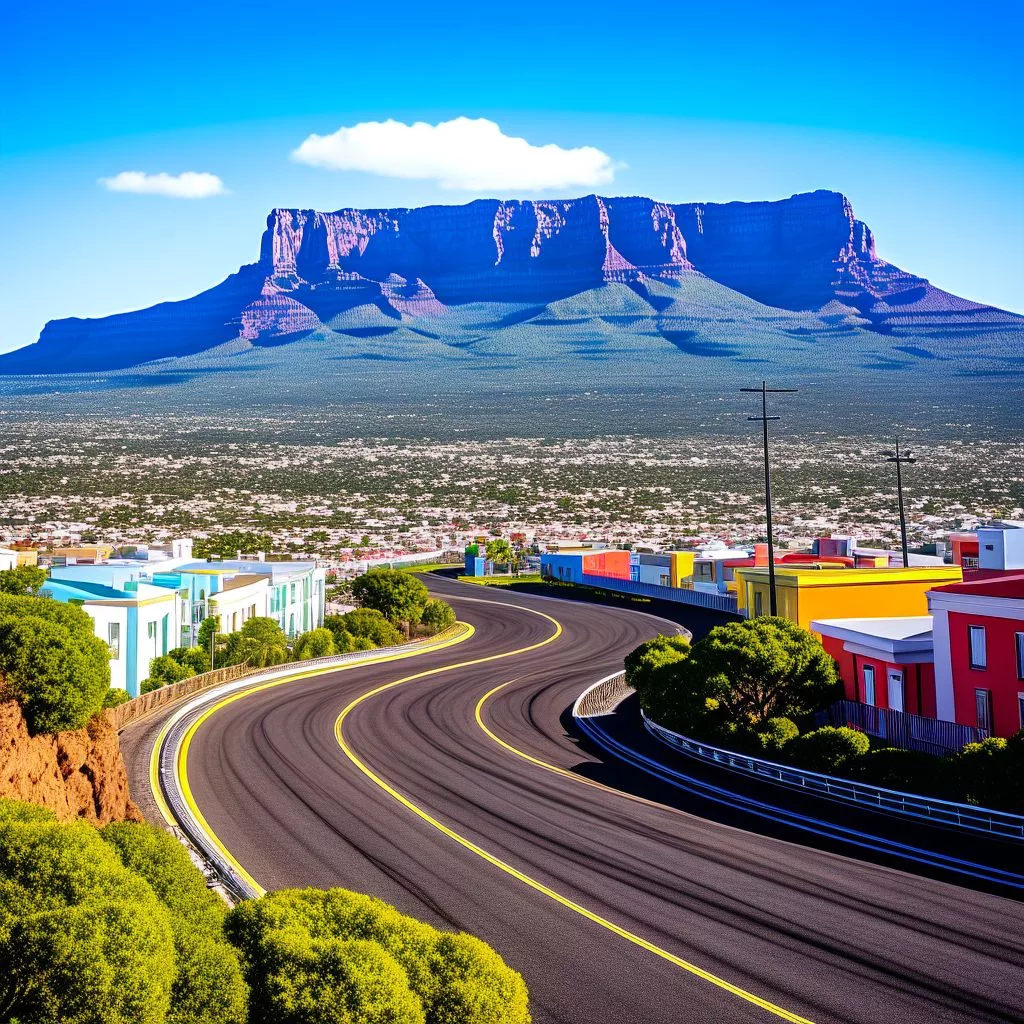The excitement is building as South Africa races to host the Formula One Grand Prix again after decades! Kyalami and Cape Town are the top contenders, each bringing something special. Kyalami has a rich history and is almost ready for the big race, while Cape Town dazzles with a beautiful street circuit proposal and plans for a brand-new track. This thrilling competition is not just about speed; it’s a chance to boost tourism, create jobs, and ignite national pride in motorsport. As the decision day approaches, all eyes are on these two cities, hoping to welcome the roaring engines back to South African soil!
What are the top contenders to host the South African Formula One Grand Prix?
The top contenders for the South African Formula One Grand Prix are Kyalami and Cape Town. Kyalami has a rich F1 history and is nearly ready for certification, while Cape Town proposes a scenic street circuit and a new FIA-certified track, enhancing its appeal as a host.
The Return of a Motorsport Giant
The countdown has begun, and the competition to host the South African Formula One Grand Prix is reaching an intense climax. Cape Town and Kyalami have surfaced as the top contenders, sparking excitement among fans worldwide. South Africa, absent from the F1 calendar since 1993 when Alain Prost triumphed at Kyalami in a Williams-Renault, is on the edge of a historic comeback.
Reviving the South African Grand Prix has encountered numerous hurdles, mostly financial. However, recent governmental support might turn the tables. Sports Minister Gayton McKenzie’s announcement in December 2024 about forming a dedicated steering committee of experts has reignited enthusiasm. The initial submission deadline set for February was extended to March 18, allowing potential hosts more time to perfect their proposals. “Bringing Formula One to South Africa would revolutionize tourism, the economy, and development. This extension ensures every bidder can present their strongest case,” McKenzie highlighted.
While the exact number of bids remains undisclosed, insider reports from Times Live suggest a close race between Kyalami and Cape Town. Kyalami, located in Midrand, brings a rich F1 heritage dating back to 1967. Current owner Toby Venter claims the track is “90% ready” to meet F1 standards, requiring an investment between $5 million and $10 million to obtain the coveted FIA Grade 1 certification. This historical advantage makes Kyalami a strong contender.
Cape Town’s Ambitious Proposals
Cape Town, however, presents formidable competition through two compelling proposals. The first, led by Cape Town Grand Prix SA (CTGPSA), aims to host an F1 race on a 5.7km street circuit that captivated audiences during the 2023 Formula E race. This track weaves through the Green Point sports precinct, close to the iconic DHL Stadium. The second proposal, independently backed by US-based Boundless Motorsport, is even more ambitious. This plan involves constructing a new FIA-certified circuit on Cape Town’s outskirts. Headed by South African-born Bobby Hartslief, a former organizer of MotoGP events at Kyalami and Phakisa, this project aspires to accommodate over 125,000 spectators.
The financial stakes are enormous, with hosting an F1 race estimated to cost around R2 billion. While potential sponsorships are being explored, ticket prices are expected to match international standards. For example, the most affordable adult ticket at the recent Australian Grand Prix cost approximately R2,000. This economic factor is crucial, highlighting the financial commitment required from both the hosts and attendees.
The competition extends beyond South Africa’s borders, as other African countries like Morocco and Rwanda also contemplate bids to host this prestigious event. The race for a spot on the F1 calendar is fiercely competitive. Nevertheless, McKenzie, an avid motorsport enthusiast, remains undeterred. His ambition to see South Africa back in the F1 spotlight by 2027, if not sooner, gained momentum after a key meeting with F1 CEO Stefano Domenicali at last year’s Azerbaijan Grand Prix.
Kyalami’s Storied Legacy
Kyalami’s enduring legacy, combined with recent upgrades, makes it a formidable candidate. The track’s storied past, filled with iconic races and memorable moments, evokes a sense of nostalgia among motorsport fans. Its location in Midrand offers logistical benefits, strategically situated between Johannesburg and Pretoria, making it easily accessible to a large urban population. This accessibility is a crucial factor, potentially driving higher attendance and greater local engagement.
The track’s history is intertwined with South African motorsport, and its revival could reignite passion among long-time fans and introduce new generations to the sport. Toby Venter’s commitment to upgrading the facility further underscores the track’s readiness to meet F1 standards.
Cape Town’s Dynamic Vision
On the other hand, Cape Town offers a fresh and dynamic alternative. The proposed street circuit, set against the picturesque backdrop of Table Mountain and the Atlantic Ocean, promises a visually stunning race. The city’s reputation as a global tourist destination could enhance the event’s appeal, drawing international spectators and media attention. The independent bid led by Boundless Motorsport showcases Cape Town’s potential to innovate and adapt, reflecting the city’s entrepreneurial spirit and capacity for hosting large-scale events. Bobby Hartslief’s experience and vision add credibility to this ambitious project, making it a serious contender.
Cape Town’s proposals highlight the city’s ability to host world-class events, leveraging its scenic beauty and vibrant culture. The street circuit, which already proved successful during the Formula E race, offers a unique racing experience, while the new circuit plan demonstrates a long-term commitment to motorsport.
Broader Implications and Cultural Significance
Hosting a Formula One Grand Prix in South Africa has implications that go beyond the racetrack. A successful bid would position South Africa as a major player in global motorsport, potentially attracting further investments in related industries. The economic ripple effects could be significant, boosting tourism, creating jobs, and fostering infrastructural development. The international exposure from hosting such a high-profile event could elevate South Africa’s brand on the global stage, attracting future events and investments.
Additionally, the revival of the South African Grand Prix holds deep cultural significance. It represents a fusion of sports, history, and national pride, offering a chance to celebrate the country’s rich motorsport heritage. This event could inspire a new generation of South African drivers, engineers, and fans, reigniting a passion for the sport across the nation. The potential to host the Grand Prix aligns with broader societal goals, including youth engagement, technological advancement, and international cooperation.
The Final Countdown
As the decision day nears, anticipation builds. The selection committee faces a monumental task, balancing historical reverence with future aspirations. The choice between Kyalami and Cape Town encapsulates this delicate balance, each offering a unique vision for South Africa’s motorsport future. The journey to bring Formula One back to South African soil is more than a quest for speed; it is a pursuit of legacy, innovation, and national pride.
Kyalami’s rich history and strategic location provide a solid foundation, while Cape Town’s innovative proposals and scenic allure offer a fresh perspective. Both cities embody different strengths, reflecting the diverse possibilities for South Africa’s motorsport revival. The final decision will shape the future of the nation’s involvement in Formula One, promising to write a new chapter in its storied motorsport history.
FAQ: The Race to Host the South African Formula One Grand Prix
What cities are competing to host the South African Formula One Grand Prix?
The top contenders are Kyalami and Cape Town. Kyalami boasts a rich F1 history and is nearly ready for certification, while Cape Town offers a scenic street circuit proposal and plans for a new FIA-certified track.
What is the significance of hosting the Formula One Grand Prix in South Africa?
Hosting the Grand Prix would significantly boost tourism, create jobs, and foster national pride in motorsport. It would also enhance South Africa’s reputation as a major player in global motorsport, potentially attracting further investments in related industries.
What are the financial requirements for hosting the Grand Prix?
The estimated cost to host an F1 race is around R2 billion. Potential sponsors are being explored, and ticket prices are expected to align with international standards. For comparison, the most affordable adult ticket at the recent Australian Grand Prix was approximately R2,000.
What preparations has Kyalami made to host the Grand Prix?
Kyalami, located in Midrand, is about 90% ready to meet F1 standards, needing an investment of $5 million to $10 million for FIA Grade 1 certification. Its storied legacy and upgrades further strengthen its candidacy.
What are Cape Town’s proposals for hosting the Grand Prix?
Cape Town has two proposals: one is a 5.7km street circuit through the Green Point sports precinct, and the other is a plan for a new FIA-certified circuit on the outskirts of the city, capable of accommodating over 125,000 spectators.
When will a decision be made regarding the host city for the Grand Prix?
The deadline for proposals has been extended to March 18, 2024. As the decision day approaches, the selection committee will evaluate the bids, weighing historical significance against future aspirations. The aim is to see South Africa return to the F1 calendar by 2027 if not sooner.












